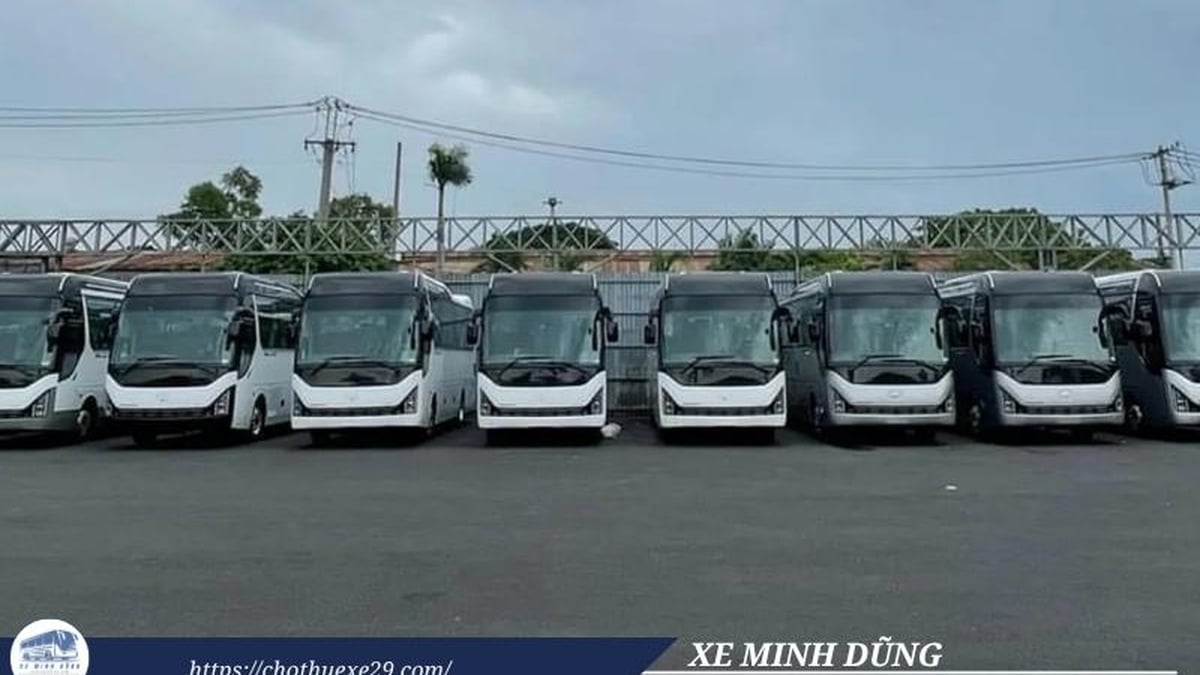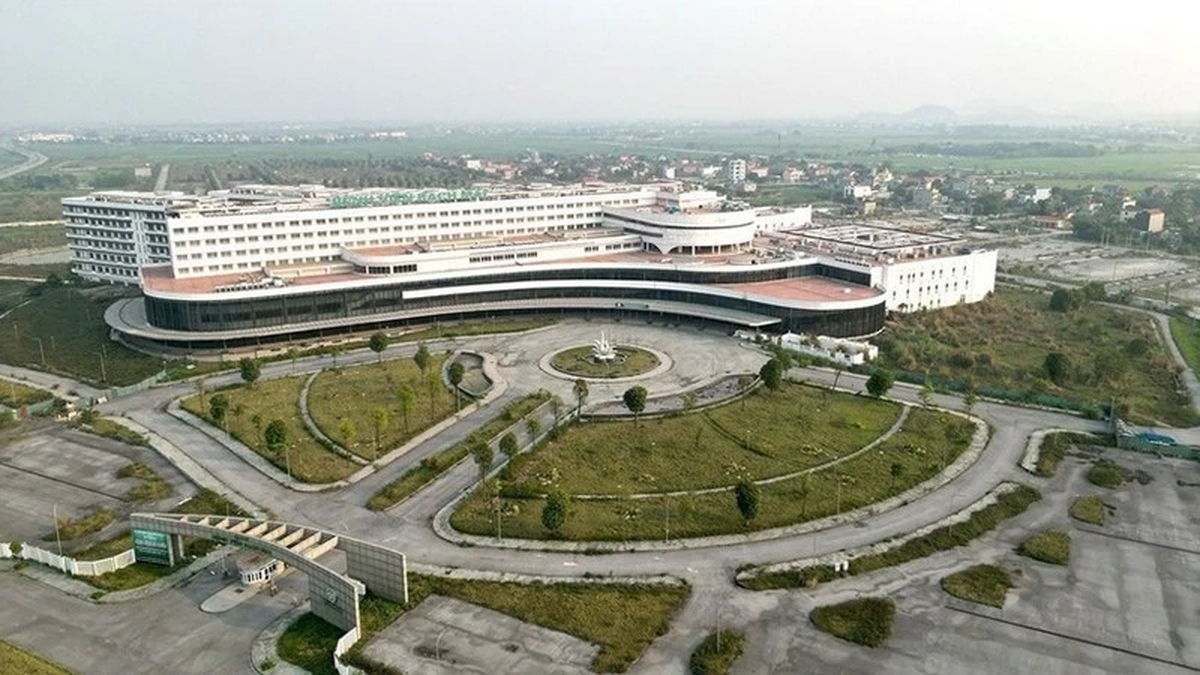The Southeast region has a particularly important strategic role and position in politics , economy, culture, society, national defense, security and foreign affairs of the whole country. Resolution 24/NQ-TW of the Politburo determines that the Southeast must be a dynamically developing region, a center of economics, finance, trade, services, education and training, development of high-quality human resources, science - technology, innovation, digital transformation leading the country and the Southeast Asia region, playing an important role in linking development with other economic regions.
To maintain its leading economic role and continue to enhance its contributions to the national economy, in response to the trust of the Central leaders and the people of the whole country, the Southeast region is very interested in investing in new fields. Digital infrastructure at the present time is not only understood as telecommunications networks, data centers, server systems but also as technological infrastructure connecting digital platforms. In that connection, data is created and considered the most important result, commodity, and resource in the entire digital transformation process. This resource has the characteristics of being both an output product and an input source for the process of creating new data and new values. Therefore, the Southeast region is a pioneer in building technological infrastructure, considering the role of technological infrastructure as important as transport infrastructure and has investment priorities appropriate to its scale: "Transport infrastructure is a material flow, then next to it must be a corresponding data flow".
Education and Training is one of the most important factors in the regional competitiveness index, so digital transformation in education is always interested and invested as a key solution to improve the local competitiveness index. Digital transformation in the education and training sector is a process of changing the thinking, the way individuals act and the operations of organizations in the education system. This change is facilitated by technology, developed through the acceptance and active participation of the community and the shift in economic structure from exploiting financial capital to exploiting data capital.
To successfully transform digitally, a correct digital transformation strategy is needed, leading the development of a technology ecosystem with digital platforms that effectively serve educational activities: In particular, the strategy needs to have a comprehensive and comprehensive vision for the medium-term plan to 2025 and orientation to 2030, with flexibility to quickly respond to changes in technology.
In addition, the deployment of new technologies must be appropriate and inherit the achievements of previous technologies. The strategy must promote participation and aim to serve the majority of the community, thereby creating data resources, the most important capital of the digital transformation process.
Therefore, when building policies, it is necessary to aim at the goal of developing, managing, preserving, and exploiting data resources, thereby creating value for society in general and the education sector in particular.
In recent years, with the strong direction from the Government, the Ministry of Education and Training, the People's Committees of provinces and cities, with the support of the whole industry, teachers, parents and students, as well as the contribution of edtech enterprises, the education and training sector in the Southeast region has basically formed a digital transformation ecosystem in which there are complete components such as: A data management platform for the whole industry with a data interconnection axis to help share data to other systems and applications; Digital education transformation solutions including a system of synchronizing different application subsystems basically meet the requirements for management, teaching - learning, testing and assessment, communication between parents and schools; Industry-wide data mining solutions to serve administrative reform such as enrollment, school transfer, document interconnection management or management of teaching equipment and supplies to serve the new general education program.
At the same time, there are specific action programs to help improve the professional knowledge and awareness of managers, teachers, and IT staff about digital transformation to ensure that the industry's human resources meet the requirements of digital transformation and technological revolution.
Mr. Nguyen Van Hieu - Director of the Department of Education and Training of Ho Chi Minh City said that during the implementation process, changes in technology and the industry's adaptability will more or less affect the progress of the set goals, but the strategic directions in digital transformation of the whole industry, taking data as the basis, taking teachers and learners as the center are extremely solid. Therefore, the digital transformation goals of the education and training industry by 2025 with a vision to 2030 specifically include: Ensuring technical infrastructure and information technology equipment in schools such as computers, transmission lines, and equipment suitable for implementing new teaching models. Focus on researching and piloting personal computer solutions on the cloud to reduce the pressure of equipment investment, enhance privacy and flexibility compared to the current physical machine model.
Next, enhance the role of the management information system by promoting data authentication activities between state agencies, data connection between systems, thereby improving data quality to meet management and operation requirements. At the same time, promote combined teaching models such as smart classrooms, interactive lectures to expand students' learning activities beyond the classroom; improve the effectiveness of teaching in the classroom, develop students' self-study and research capacity. Promoting combined teaching and learning becomes a solution to move towards personalized teaching, supporting the development of learners' capacity in the spirit of the 2018 general education program.
Along with that, creating a digital learning material warehouse for the whole industry helps teachers build and deploy lessons on the LMS environment more quickly and effectively. Each learning material unit is built based on the knowledge content of the 2018 General Education Program, is uniformly identified, and shared to LMS systems. Student interaction behavior data on learning materials will be stored for analysis, personalization of learning, creating a big data platform paving the way for the deployment of AI solutions in educational activities.
On the other hand, develop digital platforms for teaching and learning activities and massive open online courses (MOOCs) to facilitate flexible learning and widespread access towards building a learning society, serving the goal of lifelong learning for people. Promote training to improve awareness and digital skills of human resources to help teachers and managers understand and use technology effectively. Focus on basic content such as digital management skills, organizing online classes, building interactive lectures and advanced content such as knowledge of data systems and AI.
At the same time, deploy international standard IT certificates to improve IT capacity, knowledge, and application skills for high school students. Integrate cooperation with the Edtech business community to provide many advanced technology solutions to units and individuals; attract investment capital into the education technology market.
Finally, it is necessary to develop a supportive policy mechanism to ensure and promote the development of technology in education, including financial policies, applying regulations related to information security, data management, as well as assessing standards and processes for businesses to participate in the education system. Periodic assessment to ensure that digital transformation efforts of authorities and facilities at all levels are effective and in line with the general direction./.
Source

























![[Photo] National Assembly Chairman Tran Thanh Man visits Vietnamese Heroic Mother Ta Thi Tran](https://vphoto.vietnam.vn/thumb/1200x675/vietnam/resource/IMAGE/2025/7/20/765c0bd057dd44ad83ab89fe0255b783)












































































Comment (0)